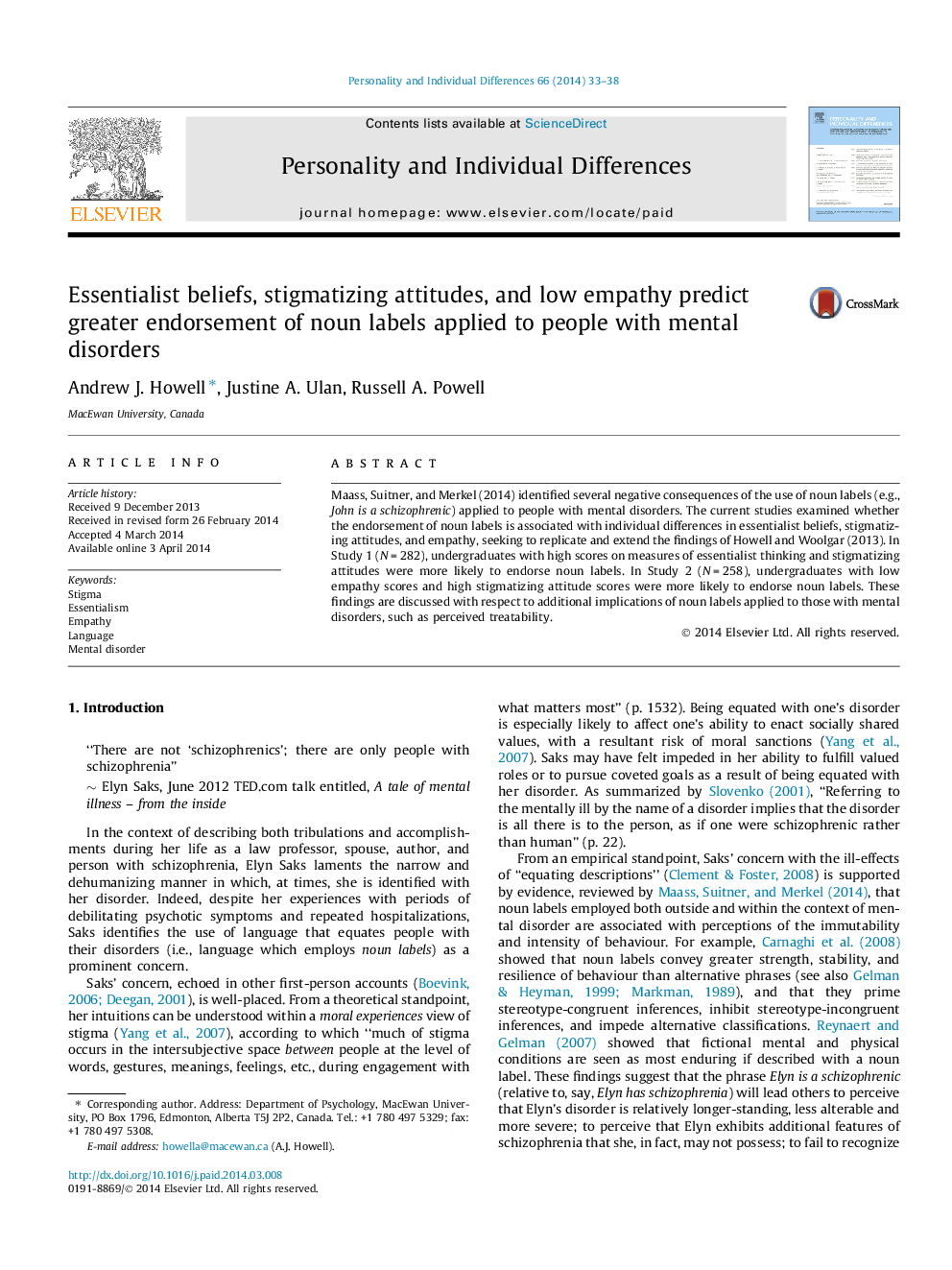| Article ID | Journal | Published Year | Pages | File Type |
|---|---|---|---|---|
| 890470 | Personality and Individual Differences | 2014 | 6 Pages |
•We studied the endorsement of noun labels associated with mental disorders.•Essentialist beliefs and stigmatizing attitudes predicted noun label endorsement.•In a second study, low empathy also predicted such endorsement.•There may be further implications of noun labels, such as perceived treatability.
Maass, Suitner, and Merkel (2014) identified several negative consequences of the use of noun labels (e.g., John is a schizophrenic) applied to people with mental disorders. The current studies examined whether the endorsement of noun labels is associated with individual differences in essentialist beliefs, stigmatizing attitudes, and empathy, seeking to replicate and extend the findings of Howell and Woolgar (2013). In Study 1 (N = 282), undergraduates with high scores on measures of essentialist thinking and stigmatizing attitudes were more likely to endorse noun labels. In Study 2 (N = 258), undergraduates with low empathy scores and high stigmatizing attitude scores were more likely to endorse noun labels. These findings are discussed with respect to additional implications of noun labels applied to those with mental disorders, such as perceived treatability.
